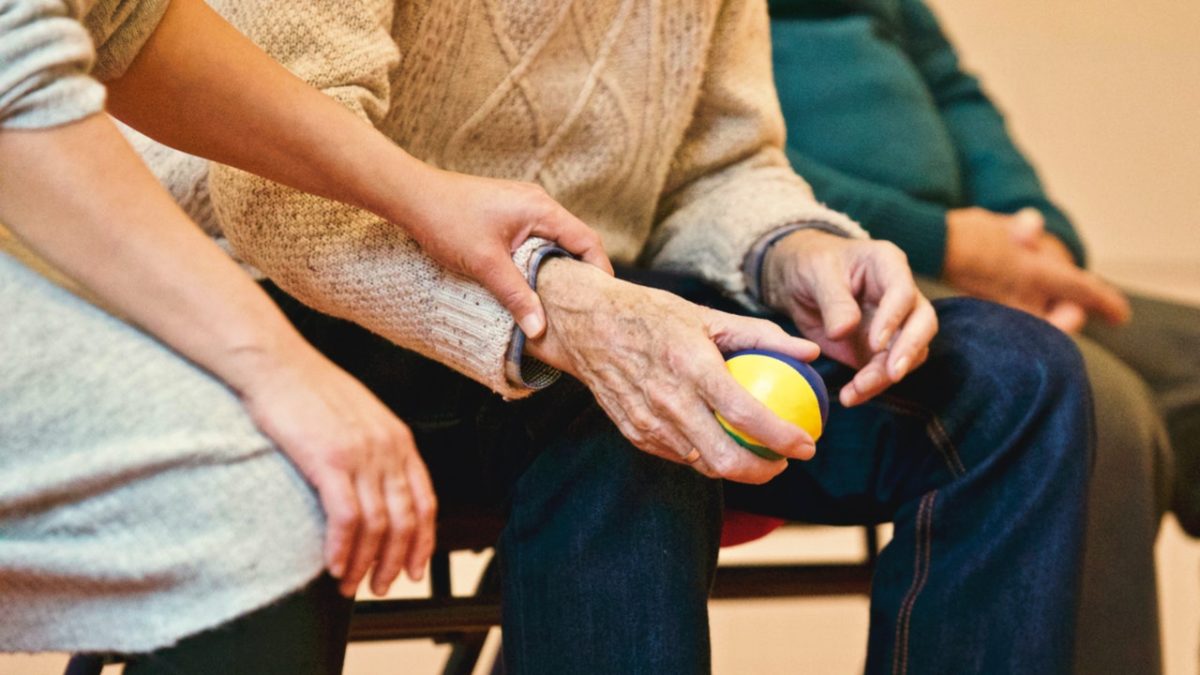This blog is a concise version of Thera van Osch’s essay on ‘’The gender impact of Coronavirus – How to move to an economy that cares for people and the planet’’ with a focus on the care economy.
The Coronavirus crisis is a wake-up call for all of us. Nurses, carers and cleaners are key professions in the survival strategy against the corona virus, and the majority of them are low-paid or unpaid women. All over the world women comprise the majority of workers in the health sector and they represent 70% of workers in the health and social sectors. These people are true heroes in the fight against this virus, risking their own health. And most care workers in the social sector are also women.
The unpaid care sector is the largest sector of the economy. This work consists of taking care of children and sick family members, facilitating life for elderly people or family members with a disability, managing the home (shopping, cleaning, cooking, washing clothes etc.) and providing long-term unpaid support to the community of friends, neighbours, (ex-)colleagues and other acquaintances.
Unpaid care work is mainly assigned to women and globally, they perform 76.2% of the total hours of unpaid care work—more than three times as much as men. However, these unpaid working hours are ignored in the neo-liberal economic model of our times; not valued, not included in economic statistics, and never taken into account in any macroeconomic policy, they are just taken for granted. Throughout history, the economy of care has always existed, functioning as a buffer for economic crisis in the capitalist system, working as a placenta feeding the market economy and the State, but never acknowledged as a basic economic system.
Caring economics refers to an economy that cares for people and cares for the planet. It builds on the concept of care as defined by Joan Tronto, who sees it as an activity that includes “everything that we do to maintain, continue, and repair our ‘world’ so that we can live in it as well as possible. That world includes our bodies, ourselves, our environment, all of which we seek to interweave in a complex, life sustaining web.”
Care work is more than an activity that can be expressed in objective criteria such as time or (equivalent) value, as it has an intrinsic human value that refers to the deeper sense of life. The shutdown of the economy creates space to release these intrinsic human values, and to reveal the hidden economy of caring human beings.
A lot of work in the monetary economy is now being taken over by the unpaid care economy. Schools are closed, parents watch them and help them do their homework online. More people at home means more cleaning work to be done. Restaurants and fast-food shops are closed, so people have to cook more. The more hospitals and medical care centres are overburdened, the more unpaid care work needs to be done for sick people at home. As shops and cultural centers are closed, people manufacture their own products and invent their own forms of entertainment. As plumbers and carpenters can’t come, they must learn their own solutions. The unpaid care economy is taking over the key functions of the economy and keeping society going.
Coronavirus forced governments to put care for people at the centre of policy measures, which is uncommon, because in the current neo-liberal economic model, the ‘caring human being’ does not exist. This model is built on the concept of ‘the rational economic man’, a paradigm of the ‘homo economicus’ in which human beings are considered to be independent, autonomous, rational economic individuals who pursue maximum satisfaction with a minimum of costs. In a free market this human behaviour is supposed to ensure the efficient allocation of scarce goods and services. Society is supposedly the sum of all these rationally acting individuals.
Fortunately, this one-dimensional concept of human beings is only a theoretical construction. A caring economy requires mutual trust among interrelated citizens. It is the caring human being that keeps society running, in good times and in bad times, in times of crisis and war, in the formal and informal economy, in modern and traditional societies. The economy of care is always there—every day and everywhere. Care is a key feature of the global human context in which the market economy is embedded. Even if markets collapse, the economy of care continues to function. This is what the Coronavirus crisis is showing us.
The Coronavirus crisis shows that putting ‘care for people’ at the centre of politics generates new dynamics, solidarity, clean air, new ways to combine work with family responsibilities etc. Why should we fall back on the old model of the neo-liberal economy that has proven unsustainable from both human and ecological points of view? The activities within care economics contribute to maintaining, continuing and repairing the world in which we live. Care economics is a model of an economic system that can sustainably improve the quality of life for all.
Thera van Osch’s essay is available under this link.

Picture by Matthias Zomer/ Pexels

